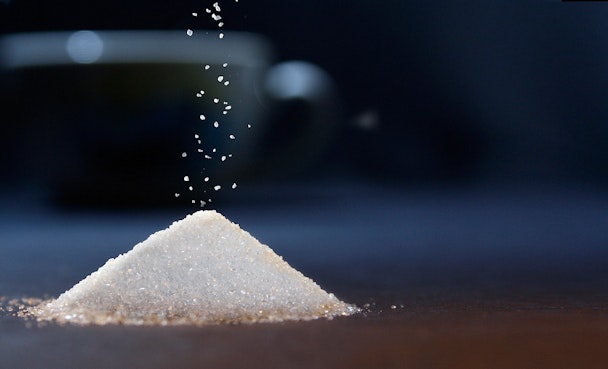Advertisers welcome Government decision to forgo imposed rules on marketing snacks to children in Obesity Plan
Advertisers hope the government’s decision to forgo imposing regulations on the marketing of snacks in its Obesity Plan is proof that working together, rather than regulation is the key to curbing rising level obesity levels.

sugar
Announced today the new plan has placed an emphasis on a soft drinks industry levy across the UK and a voluntary scheme for the food industry to reduce the amount of sugar in food and drink to move consumers towards healthier alternatives. The Government said that the revenue from the levy, which will placed on producers and importers rather than consumers, will be invested in physical activity for school children.
Advertising Association chief executive Tim Lefroy said of the decision to leave out restrictions on marketing sugary foods to children: "Advertising has already taken action to end HFSS (high in fat, salt or sugar) ads in children's media, whether on TV, online or elsewhere. We hope this announcement signals government's recognition that working together with UK agencies, brands and media will get us further, faster in improving the nation's health.”
The government said that it is giving producers and importers two years to lower the sugar in their drinks, which means that if they comply, they won’t face the sugar tax. Under the plan all sectors of the food and drinks industry will be asked to reduce overall sugar by at least 20 per cent by 2020, including a 5 per cent reduction in year one.
The news follows months of lobbying by the food and drink industry to escape marketing restrictions, with many brands having already worked to reduce the amount of sugar in their products.
But while the industry is pleased that the government has recognised that working in partnership on a voluntary basis is the best option to make progress, Ian Wright CBE, director general of the Food and Drink Federation said that the proposed tax on soft drinks “is a disappointing diversion from effective measures to tackle obesity”.
“Soft drink companies are already making great progress to reduce sugars from their products, having achieved a 16 per cent reduction between 2012 and 2016. Indeed, many individual manufacturers have a proud track record of reformulation to remove salt, fat and sugar from food and drinks and this work will continue.
“However the target set for sugars reduction in the Plan is flawed. It focuses too strongly on the role of this single nutrient, when obesity is caused by excess calories from any nutrient.”
The Obesity Plan has however been met with criticism by charities and public health experts who have condemned the government’s decision to restrict advertising sugar foods to children.
Jenny Rosborough, campaigns manager at Action on Sugar, told Sky News that the omission of advertising regulations is “an unforgivable missed opportunity”.
"We have seen a really effective salt reduction programme in the UK.
"It's such a shame we can't lead the way in tackling obesity and type two diabetes as well, which we had the perfect opportunity to do with the release of this strategy… It is an unforgivable missed opportunity."
Professor Graham MacGregor, chairman of Action on Sugar and Consensus Action on Salt and Health (CASH) said in a statement: “After the farce of the Responsibility Deal, where Andrew Lansley [former health secretary] made the food industry responsible for policing themselves, it is sad to see that this is just another imitation of the same Responsibility Deal take two. It is an insulting response to the UK crisis in obesity type 2 diabetes, both in children and adults.”
Public Health England will monitor the progress of the plan among the food and drink industry every six months.

